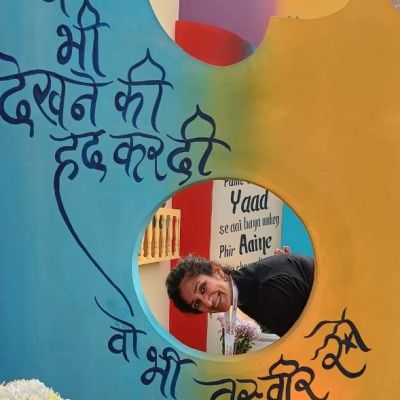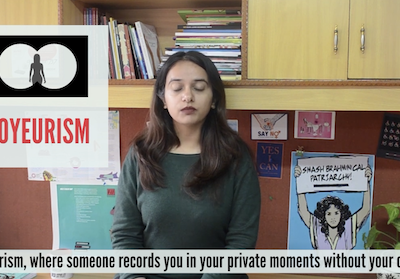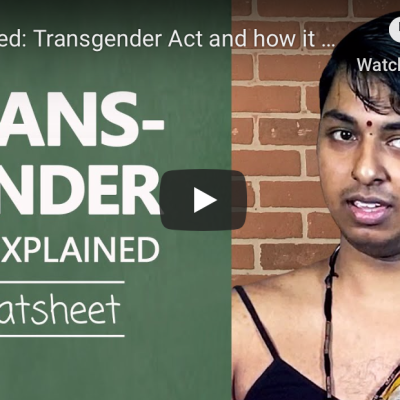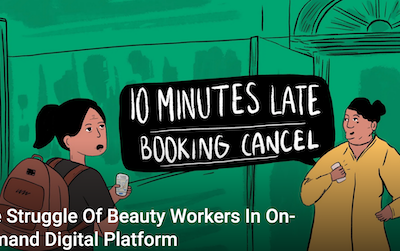SRHR
Ethical considerations and frameworks for traditional (for the lack of a better term) have had decades of debates, discussions, and revisions to have Boards of Review with similar ethics regulations (although they are still being critiqued).
व्यंग छुपी हुई हंसी को बाहर लाने का अवसर देता है। प्रतिभागी जो आज तक इन मुद्दों को गंदा, कलंकित या महत्वहीन मान कर छुपा रहे हैं अब कम से कम उनपर हंस सकते हैं।
विकलांगता के साथ जी रहीं महिलाओं (Women with Disabilities/WWD) को यौन और प्रजनन संबंधी स्वास्थ्य देखभाल और अधिकारों पर ज़रूरी बाचीत
केवल एक तरह से जीवन जीने, या अपनी यौनिकता को अनुभव करने से अधिक और भी बहुत कुछ होता है। इसके लिए ज़रूरी है कि पहले तो हम अपने मन में इसे स्वीकार करें और इसके लिए तैयार हों।
Abortion and sex work share the distinction of being topics on which even feminist activists sometimes find it difficult to remain non-judgmental, confronting feminists with the question: to what lengths are we really willing to go to respect and enable women’s choices and bodily autonomy?
The scope for unsafe sex, as discussed earlier, extends to STIs and STDs and therefore, the feeling of ‘un-safety’ during sexual intercourse must expand itself to actively include infections as an equally important factor for using contraceptives, as are unwanted pregnancies.
What vindicates the argument that women with disabilities (WWDs) should be deprived of sexual and reproductive healthcare and rights is scary. Harmful stereotypes of WWDs include the belief that they are hypersexual, incapable, irrational and lacking control. These narratives are then often used to build other perceptions such as that WWDs are inherently vulnerable and should be ‘protected from sexual attack’.
Japleen Pasricha, founder of Feminism in India, lays bare the violence women, LGBTQIA+ folks, and historically marginalised communities face in online spaces, ranging from identity theft, bullying, trolling, to having our private photographs and details disseminated without our consent and being blackmailed.
Trans rights activist Kanmani Ray succinctly lays down the concerns around the Act, points out how its language reinforces the gender binary and highlights the fact that while seeking to protect the rights of trans people, the Act in fact discriminates against them.
Dr. Lindsey Doe debunks myths around disability and sexuality, at once carving out space for affirming and inclusive discussions and challenging negative and harmful stereotypes. Emphasising the sexuality of people with disabilities as rich and diverse, Lindsey wonders what inclusive sexual and reproductive health and rights really mean.
If you live in an urban metropolitan city, you must have seen women dressed up in company uniform, carrying a heavy bag on their shoulders, their attire shouting a brand name with logos all over her. Their bodies become an advertising ground for a company’s marketing. Sometimes, the bag is a portable salon that they carry to their client’s (home), who book the beauty service using a mobile application. These ‘workers’ enroll themselves on the platform company that operates as an intermediary, to get bookings on-demand.
Sex has always been at the core of HIV and AIDS since the virus was first identified almost 30 years…
Facebook. Google. Apple. Microsoft. Amazon. As the white male-dominated Big Five in Silicon Valley monopolise most platforms that guide online interactions almost everywhere outside China, any aspiration towards a feminist revolution has become capitalised.
It’s (already!) mid-2015: advocates, activists, development workers, policy wonks working on the ‘new development agenda’ or ‘sustainable development goals’ or…
If you’ve got a body, in which you’re going to negotiate this life, you have to know how it works.














